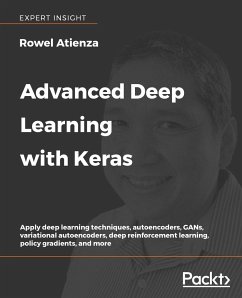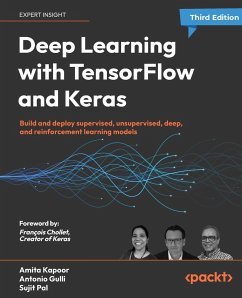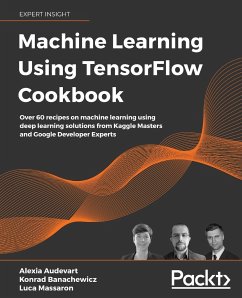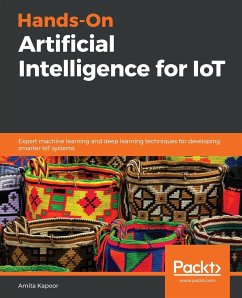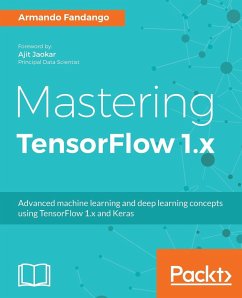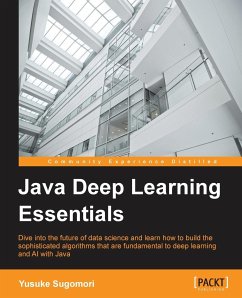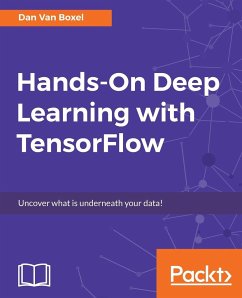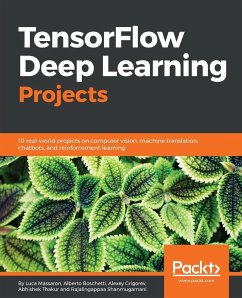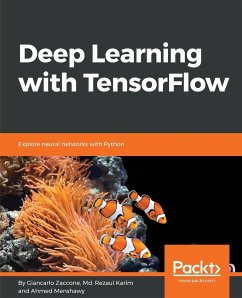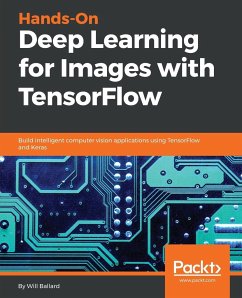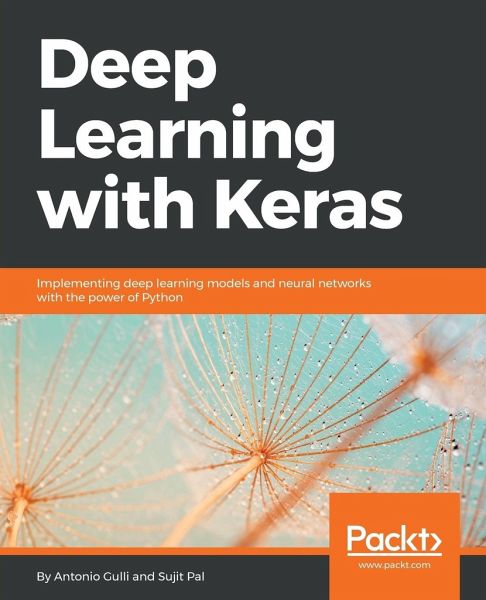
Deep Learning with Keras
Implementing deep learning models and neural networks with the power of Python

PAYBACK Punkte
26 °P sammeln!
Publisher's Note: This edition from 2017 is outdated and is not compatible with TensorFlow 2 or any of the most recent updates to Python libraries. A new second edition, updated for 2020 and featuring TensorFlow 2, the Keras API, CNNs, GANs, RNNs, NLP, and AutoML, has now been published. Key Features:Implement various deep learning algorithms in Keras and see how deep learning can be used in games See how various deep learning models and practical use-cases can be implemented using Keras A practical, hands-on guide with real-world examples to give you a strong foundation in Keras Book Descript...
Publisher's Note: This edition from 2017 is outdated and is not compatible with TensorFlow 2 or any of the most recent updates to Python libraries. A new second edition, updated for 2020 and featuring TensorFlow 2, the Keras API, CNNs, GANs, RNNs, NLP, and AutoML, has now been published. Key Features:Implement various deep learning algorithms in Keras and see how deep learning can be used in games See how various deep learning models and practical use-cases can be implemented using Keras A practical, hands-on guide with real-world examples to give you a strong foundation in Keras Book Description: This book starts by introducing you to supervised learning algorithms such as simple linear regression, the classical multilayer perceptron and more sophisticated deep convolutional networks. You will also explore image processing with recognition of handwritten digit images, classification of images into different categories, and advanced objects recognition with related image annotations. An example of identification of salient points for face detection is also provided. Next you will be introduced to Recurrent Networks, which are optimized for processing sequence data such as text, audio or time series. Following that, you will learn about unsupervised learning algorithms such as Autoencoders and the very popular Generative Adversarial Networks (GANs). You will also explore non-traditional uses of neural networks as Style Transfer. Finally, you will look at reinforcement learning and its application to AI game playing, another popular direction of research and application of neural networks. What You Will Learn:Optimize step-by-step functions on a large neural network using the Backpropagation algorithm Fine-tune a neural network to improve the quality of results Use deep learning for image and audio processing Use Recursive Neural Tensor Networks (RNTNs) to outperform standard word embedding in special cases Identify problems for which Recurrent Neural Network (RNN) solutions are suitable Explore the process required to implement Autoencoders Evolve a deep neural network using reinforcement learning Who this book is for: If you are a data scientist with experience in machine learning or an AI programmer with some exposure to neural networks, you will find this book a useful entry point to deep-learning with Keras. A knowledge of Python is required for this book.





